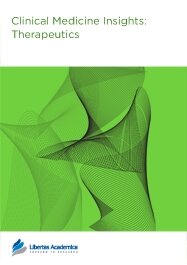

Publication Date: 05 Aug 2009
Type: Editorial
Journal: Clinical Medicine Insights: Therapeutics

Gastroesophageal reflux disease (GERD) is very common and is a costly problem to manage. The annual direct cost for managing the disease is estimated to be more than $9 billion dollars in the USA. In western populations, 25% of people over age 30 report having heartburn at least once a month, 12% at least once per week, and 5% describe daily symptoms. However, the prevalence of the disease tends to be underestimated, with unrecognized GERD occurring in more than 50% of patients seen in general practice for unrelated conditions. GERD is defined as symptoms or mucosal damage produced by the abnormal reflux of gastric contents against the gradient of the lower esophageal sphincter (LES) pressure into the distal esophagus, leading to impaired quality of life and other complications. The disease is thought to be caused by reduced pressure of the lower esophageal sphincter (LES) and delayed gastric emptying. It is well-recognized that GERD is associated with a variety of clinical syndromes and that it is frequently a chronic condition, often requiring long-term maintenance therapy. It can be subdivided into erosive esophagitis (EE) and non-erosive reflux disease (NERD). Patients with NERD have no mucosal breaks in the esophagus, but have typical reflux symptoms. The spectrum of upper gastrointestinal complications of GERD includes erosive esophagitis, stricture and Barrett’s esophagus, which may increase the risk of esophageal adenocarcinoma. Treatment options available for GERD range from over-the-counter (OTC) antacids to proton pump inhibitors (PPIs) and anti-reflux endoscopic procedures and surgery. This article will review each of the pharmacotherapeutic options, including new developments in proton pump inhibitor isomers, potassium competitive acid blockers and endoscopic therapy for gastroesophageal reflux disease.
PDF (238.39 KB PDF FORMAT)
RIS citation (ENDNOTE, REFERENCE MANAGER, PROCITE, REFWORKS)
BibTex citation (BIBDESK, LATEX)
Publishing in Air, Soil and Water and Water Research was the best experience I have had so far in an academic context. The review process was fair, quick and efficient. I congratulate the team at Libertas Academica for a very well managed journal.Magnus Karlsson (IVL Swedish Environmental Research Institute, Stockholm, Sweden) What Your Colleagues Say
Copyright © 2012 Libertas Academica Ltd (except open access articles and accompanying metadata and supplementary files.)
FacebookGoogle+Twitter
PinterestTumblrYouTube